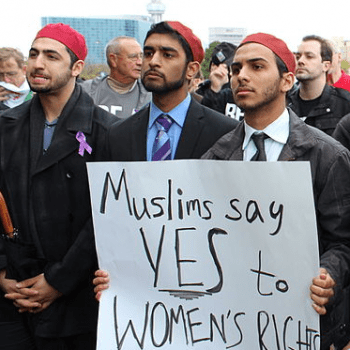When my kids were young, Elizabeth Smart was kidnapped from her parents’ home and held captive for nine months. People in my neighborhood starting keeping their kids inside rather than letting them play in their back yards. The probability of their kids being abducted was minuscule, but fear won out over statistics. I was even upbraided about continuing to let my kids play outside by people in my neighborhood, because I refused to let their young lives be shaped by fear, especially unwarranted fear.
When James Holmes shot up a crowded theater in 2012, I had friends who declared they’d never go to a cinema again, choosing to watch movies when they came out on Redbox, Netflix or Amazon Prime. Again, the likelihood of them being shot at in a theater was tiny, but fear won out over probability. Needless to say, I still enjoy my movies on the big screen.
Today, radical Muslims have carried out a series of attacks on civilians, in Paris, in San Bernadino, in Mali, and Beirut. And again, fear seems to be winning out. From Trump’s blatant bigotry with his calls to keep Muslims out of the country and to create a registry those who live here, to governors and mayors declaring they won’t allow Syrian refugees (who ironically are fleeing the very groups that carried out those terror attacks) to be settled in their state, to dozens of facebook memes on the theme of Islam as a religion that promotes murder and mayhem, despite surveys by the Pew Trust that reveal very high levels of disapproval of ISIS in Muslim countries.
As a nation, we need to have a serious conversation about our collective reaction to scary events, whether it’s child abduction, senseless mass murders, or terrorism. We need to understand statistical probabilities. And we need to understand that the solution to many of the world’s ailments lie not in tit for tat repercussions, or ever tightening the screws of security, but through empathy, compassion and addressing root causes. Causes like oppressive governments, economic inequality and the desperation caused by the inability to change one’s life or the life of one’s compatriots for the better.
Empathy, compassion and change must start at home. As citizens of one of the richest, most powerful countries, it is our job to reach out, to create change. We should not expect the poor of the world to patiently sit by until we do, nor that they will be able to pull their countries into prosperity. We should remember our own prosperity was significantly built on free land stolen or bought for pennies from the native peoples of this country, with nearly free labor stolen from many of the countries that are amongst the poorest today, and with resources many of which came from countries where the people saw no profit from the natural resources of their land. That path to prosperity no longer exists, and it is our burden to spread the wealth. Just as it is our burden to take the first step in learning empathy and showing compassion.
Today in my home town, women of all faiths came together to pray and sing for peace, to learn from each other about the value peace and faith have in their lives. This is the example we need to emulate when confronted by terrorism, mass shootings and other horrific deeds. We need to set aside the fear, and reach out to affirm our similarities, not with the criminals who have carried out these deeds and need to be prosecuted, but in our opposition to them and our commitment to remain human to one another.











